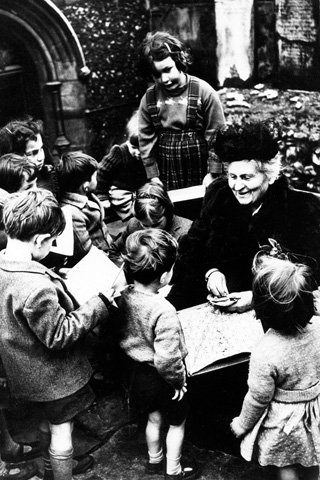About IMP
The International Montessori Preschool (IMP) is a pioneer of the Montessori education philosophy in Egypt. Since first opening its doors in Degla, Maadi, in 1996, IMP has continued to offer an authentic Montessori environment in Egypt and the Middle East.
The Montessori way has proven to be one of the best education programs for children around the world, as it allows them to grow and learn through their own discovery and practical experiences. At IMP, the Montessori philosophy takes precedence and is infused with instructional education, including literacy, math, science, culture, geography, history, and languages. All our classrooms encompass the features and attributes that follow the Montessori model, which spontaneously help lead to optimal child development.
Our certified teachers help guide your children along their paths towards self-discovery, enhancing their independence, creativity, intelligence, respect, and sense of community from a young age. By applying this distinctive philosophy, we enable your children to develop a sense of awareness regarding their reality, while they simultaneously experience it in themselves, in others, and in the world around them. Children are free to pick and choose the activities they wish to do without a time restraint, in turn allowing them to discover and excel at new things all at their own pace.
Our vision helps create a unique and optimum environment best suited to help with your child's development. We nurture this environment with love, care, and a total commitment to your children’s safety, security, and comfort, giving them a home away from home.
The IMP's learning activities support the five main areas that develop the children's senses, creativity, imagination, and intellectual abilities.
Practical Life:
At IMP, the children practice basic day-to-day activities that enable them to care for themselves (like shoe tying, pouring water for themselves, washing their fruits and vegetables, caring for plants, etc.). Through performing and mastering these daily activities, children develop a sense of independence and build self-esteem at a young age.
Sensorial Area:
Sensorial exercises were designed by Montessori to cover every quality that can be perceived by the senses, including size, shape, texture, weight, temperature, etc. These learning materials and activities stimulate the children's senses and offer them the first steps in organizing their intelligence, and eventually adapting to their environments.
Languages:
At IMP, the children are constantly encouraged to express themselves – the first step in enhancing their language skills. The learning materials also introduce the children to different phonetics and new vocabulary. We recommend books for them to read and stories to listen to from our well-equipped and colorful library. In due time, they are taught to write down the letters and words they learned in interesting and creative ways.
Math:
Children are naturally attracted to the simplest forms of math from an early age, from counting to computing or telling the time. At IMP, we help children learn about all mathematical concepts using special materials, including sensorial exercises.
Culture and Science:
We help inspire children’s curiosity and passion for exploration at IMP by familiarizing them with the notions of countries, continents, land and sea, planets, etc. Interesting activities are carried out to also help them distinguish between the past and the present. To further enhance their understanding of the world around them, they are encouraged to explore plants and animals, and to compare between them.
Creative Area:
Creativity is a vital area under the Montessori educational program. At IMP, we provide children with diverse art materials that are suitable for various ages for them to use freely and create what their hearts desire. We encourage the children to explore and express themselves, and believe that creativity is a significant aspect of self-expression.
About Maria Montessori
Dr. Maria Montessori, the Italian physician and educator, founded the Montessori method of education in the early 20th century. Her deep love of, and dedication to, education was apparent throughout her life, especially in her choice to attend medical school, becoming one of the first women in Italy to do so.
Early in her career, she continued her research, working with mentally disabled children and visiting asylums across the country, forming the first building blocks in her future educational philosophy. Establishing the first Casa dei Bambini (Children’s House) in 1906 where she was able to apply her methods to children without mental disabilities allowed her to better observe the behavior of children, which was crucial and formed the foundation of her educational method. She realized that children who were placed in environments with activities structured to best fit their natural development had ‘the power to educate themselves.’
Thus, the Montessori philosophy was born on the ideology that a child’s education stems from their surroundings, and their freedom to explore their surroundings for themselves instead of being taught about them; they are, in a sense, self-taught. It is an education that, at its core, bridges the gap between physical and mental development, unifying them under one umbrella in a process referred to as ‘normalization.’
Dr. Montessori’s background and life events, including how she saw her own child develop, enabled her to structure her own findings and teachings into what would become known as the Montessori education today. The Montessori method has been a revolutionary way of educating children for the past 100 years and has gradually spread throughout the world by dedicated personnel who are passionate about the natural development of children. Today, we see an increased number of Montessori schools and organizations present on a global scale, continuously aiming to inspire and support children.
“When dealing with children, there is greater need for observing, than of probing.”



